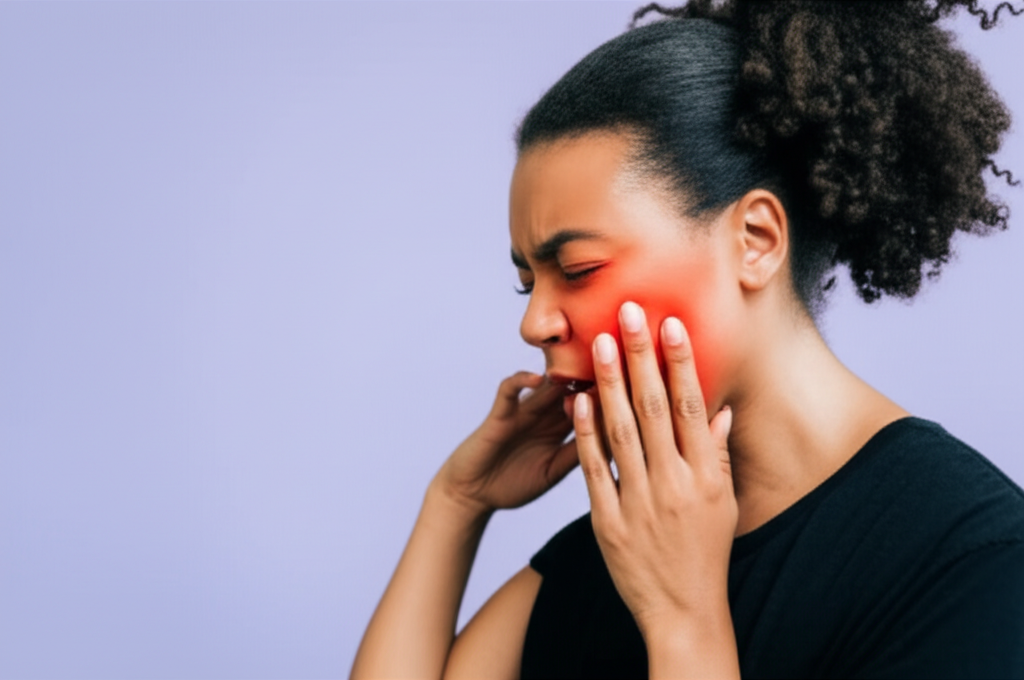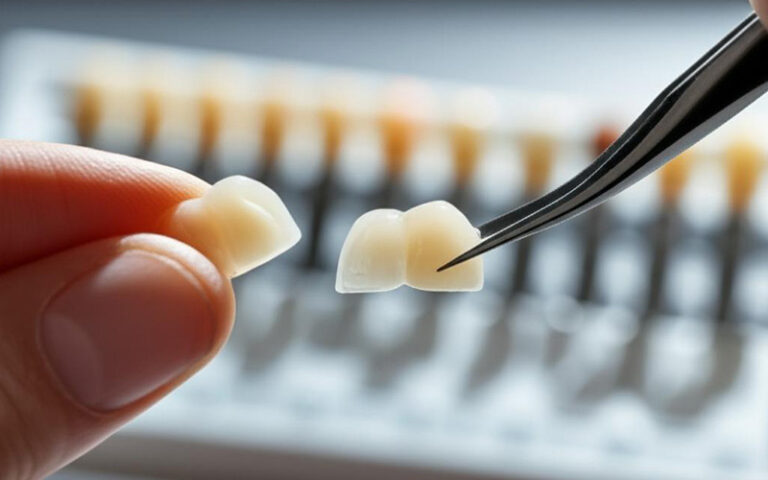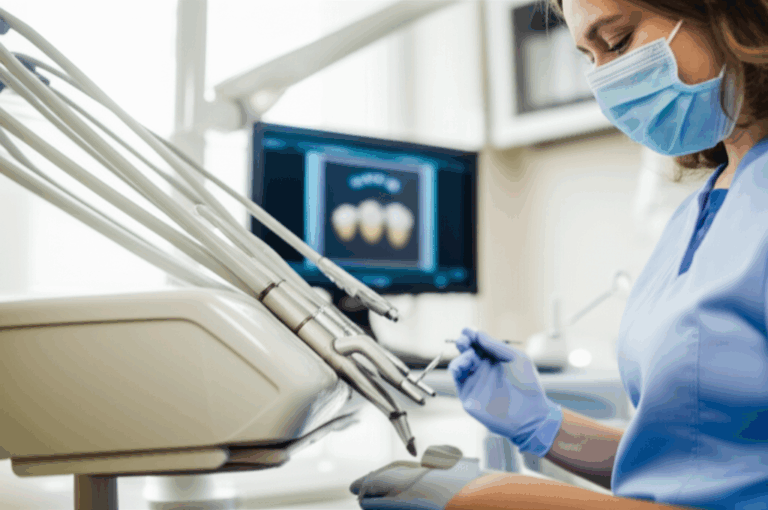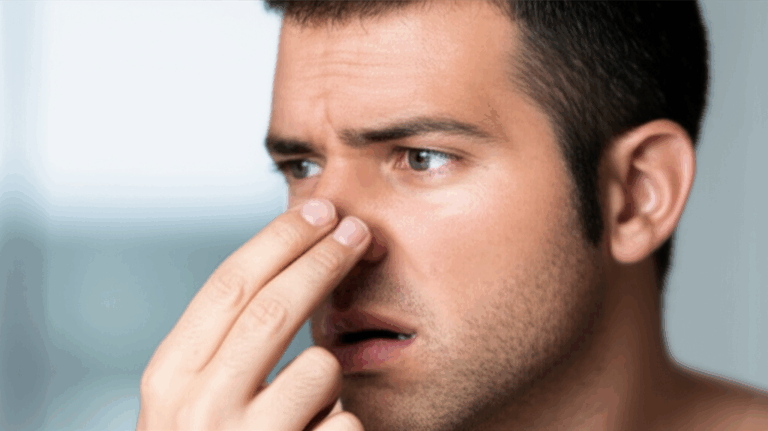
Can Dental Problems Cause Hearing Loss? Unraveling the Surprising Connection
Have you ever had a stubborn earache, annoying ringing, or a weird clogged feeling in your ears? You go to the doctor, but they say your ears look fine. It’s frustrating. The discomfort just won’t go away, and you have no idea why it’s happening. You start to wonder if the problem is starting somewhere else. Could that sore jaw or your habit of grinding your teeth be what’s causing all this?
You might be surprised, but the answer is yes. This article will show you the hidden connection between your mouth and your ears. You'll find out exactly how dental problems can lead to hearing issues. Most importantly, you'll learn what you can do about it so you can finally feel better.
Table of Contents
- What's the Big Deal About My Mouth and Ears?
- Is TMJ the Main Troublemaker for My Ears?
- How Exactly Does My Jaw Hurt My Hearing?
- What Ear Problems Can My Jaw Cause?
- Can Grinding My Teeth Cause Ear Pain Too?
- What About a Bad Bite or a Tooth Infection?
- Is This Real Hearing Loss or Something Else?
- How Do I Know If My Teeth Are the Problem?
- What Can a Dentist Do to Help My Ears?
- How Can I Stop This From Happening?
- Key Takeaways to Remember
What's the Big Deal About My Mouth and Ears?
You might think your mouth and ears are totally separate parts of your body. But they’re actually right next to each other. Your jaw joint is only a tiny distance away from your ear canal. Because they are so close, a problem in one area can easily cause problems in the other. This is called anatomical proximity.
Look at it like living in an apartment building. If your neighbor has a leak, you might get a wet spot on your wall. In the same way, swelling and inflammation in your jaw can press on the nearby parts of your ear. This is a big part of the oral health hearing connection.
Another big reason is that they share the same nerve pathways. Your face and jaw have lots of nerves that send messages to your brain. The main one is called the Trigeminal nerve. It goes to your teeth, jaw muscles, and parts of your ear. Sometimes, the signals these nerves send get mixed up. This is called referred pain. Your brain can feel pain in your ear when the real problem is in your jaw or tooth. It's a classic case of mistaken identity.
Is TMJ the Main Troublemaker for My Ears?
If you have ear problems and no one knows why, the main thing to look at is your Temporomandibular Joint, or TMJ. This is the small, tough hinge that connects your Mandible (your lower jawbone) to your skull's Temporal Bone. You have one on each side of your head, right in front of your ears. You can feel them move when you open and close your mouth.
When this joint and the muscles around it get sore or irritated, it’s called a Temporomandibular Joint Disorder, or TMD. The symptoms of TMJ affecting the ear can be tricky because they don't always feel like they're coming from your jaw. You might have jaw pain, a clicking or popping noise when you chew, and trouble opening your mouth wide. But you might also get really bad headaches, pain in your face, and neck pain.
A lot of people with TMD don't know their ear issues are coming from their jaw. They might see lots of doctors for ear pain before a dentist finally finds the real problem. That’s why TMJ hearing loss is common. If you have confusing ear symptoms, checking your jaw is a smart idea.
How Exactly Does My Jaw Hurt My Hearing?
It sounds weird that a jaw problem could make your hearing seem dull or cause ringing. But there are a few ways TMD can mess with your ears. It's not just one thing—it's a mix of things.
First, as we said, inflammation and swelling in the jaw joint can make pressure. The TMJ is super close to the middle ear, where the tiny ear bones you use for hearing are. Swelling from your jaw joint can push on the ear canal or other parts, which can cause a feeling like your ear is stuffed or like sounds are dim.
Second, the strong muscles that move your jaw can be a real problem. The Masseter muscle, Temporalis muscle, and the pterygoid muscles do a lot of work every day. If you have TMD or grind your teeth, these muscles can get tight and cramped up. This muscle tension doesn’t just stay in your jaw. It can spread and make it feel like ear pain deep inside. This is another example of referred pain.
Third, and this is big, TMD can mess with your Eustachian tube. This is a little tube that connects your middle ear to the back of your throat. Its job is to match the air pressure in your ear. When you yawn or swallow and your ears "pop," that's the Eustachian tube working. The muscles around your jaw can push on this tube, causing Eustachian tube problems. When it can’t work right, your ears can feel blocked, sounds get muffled, and you can even feel dizzy.
What Ear Problems Can My Jaw Cause?
The ear problems that come from TMJ disorders are pretty common. If you notice any of these and your doctor says there’s no ear infection or other ear problem, your jaw could be the trouble.
Here are the most common symptoms:
- Tinnitus: This means a steady ringing, buzzing, or hissing noise in your ears. The dental causes of tinnitus are often from tense muscles or nerves upset by your TMJ. Many people start to feel better once their jaw issue is treated.
- Muffled Hearing or Aural Fullness: This feels like your ears are stuffed with cotton. It’s the same feeling you get when you have a cold or fly on an airplane. This muffled hearing TMJ symptom is usually because of Eustachian tube problems.
- Ear Pain (Otalgia): This is a sharp or dull ache that feels like it's deep in your ear. People often think it’s an ear infection. But if there are no signs of infection, it’s probably otalgia of dental origin.
- Dizziness or Vertigo: Feeling wobbly or like the room is spinning can be scary. This can happen when TMJ issues mess up pressure control in your inner ear, which helps you keep your balance.
- Hyperacusis: This means you get bothered or hurt by normal everyday sounds. Regular noises may seem too loud. This can happen if the small muscles in your ear are always tense.
Can Grinding My Teeth Cause Ear Pain Too?
Yes, it totally can. Grinding or biting your teeth in your sleep is called Bruxism. A lot of people do it at night and have no idea. All that grinding puts a lot of stress on your teeth, jaw muscles, and your TMJ.
Think about it: your jaw muscles are made for eating, not for clamping down hard for hours at a time. This overuse leads to chronic muscle tension. The muscles get tired, sore, and swollen. As we said, this tightness and swelling can cause ear pain from teeth grinding and other TMJ-type problems.
Stress makes bruxism worse. When you’re stressed, you might clench your jaw during the day or grind while you sleep. This link between stress, jaw clenching, and hearing problems is very strong. Dealing with stress can really help. If you wake up with a sore jaw, dull headaches, or ear pain, bruxism could be the reason.
What About a Bad Bite or a Tooth Infection?
TMJ and bruxism are the big reasons for these problems, but other tooth troubles can also cause ear pain. Your mouth works like a team, and if one part is off, it can mess everything else up. This is a key part of understanding general Teeth Health.
A Malocclusion, which is a fancy word for a "bad bite," can also be the problem. If your teeth don’t meet the way they should, it puts extra pressure on your jaw joints and muscles. Your jaw has to work harder and in a weird way to chew. Over time, this can lead to TMD and all the ear symptoms that come with it. Fixing bite problems can sometimes bring huge relief from long-lasting ear pain.
Tooth infections can do it too. A really bad tooth infection can turn into a dental abscess, which is a painful spot full of pus. The swelling from an infection in a lower back tooth, for example, can spread through your jaw and annoy the nerves that go to your ear. That’s how a cavity can cause ear pain—not straight away, but after a bad infection. Many common Dental Diseases can cause pain in other places if you don’t fix them. In the same way, impacted wisdom teeth can put pressure and swelling in the back of your jaw and send pain straight to your ear.
Is This Real Hearing Loss or Something Else?
That’s an important thing to know. When people talk about "hearing loss," they usually think it means something permanent. But really, there are two main kinds of hearing problems.
The first is conductive hearing loss. This happens when something blocks sound from getting to your inner ear. It could be wax, fluid from an infection, or, in this case, swelling from your jaw joint or a blocked Eustachian tube. It’s like turning down the volume on a radio. The good news is this hearing problem is usually not forever. Once you fix the dental problem, your hearing usually goes back to normal.
The second kind is sensorineural hearing loss. This means damage to the special cells in the cochlea of your inner ear or the auditory nerve that sends sound messages to your brain. This kind of damage is usually for good.
Luckily, the hearing trouble from dental problems is almost always the first type—conductive. It’s just a blockage, not nerve damage. The ringing or muffled sounds you hear are a sign of pressure and tension, not that your ear is broken.
How Do I Know If My Teeth Are the Problem?
If you’ve got ear pain that no one can figure out, it’s time to play detective. Ask yourself these questions to see if your teeth might be the cause.
- Do you have ear pain, but your doctor says there’s no infection? This is the biggest clue.
- Does your jaw click, pop, or feel stiff?
- Do you get pain when you chew, talk, or yawn?
- Do you get a lot of headaches, especially in the morning or at your temples?
- Do you grind your teeth or wake up with a sore jaw?
- Does your ear pain seem linked to jaw or face pain?
If you said "yes" to one or more, your ear issues could be coming from your mouth. The next step is to see the right experts. Start with a dentist, especially one who deals with TMD problems. They can look at your bite, test your jaw movement, and see if you have wear from grinding.
Your dentist might also want you to see an ENT doctor (ear, nose, and throat) to be sure there’s no main ear problem. An audiologist can check your hearing to see what's going on. Working with a team is the best way to find the real answer.
What Can a Dentist Do to Help My Ears?
If the dentist finds a dental reason, they’ll focus on treating the cause. You don’t just cover up the ear pain—you fix what’s causing it. These treatments can make a huge difference.
For TMD and bruxism, a popular and helpful fix is a custom bite splint or mouthguard. You wear this, usually while sleeping, to stop grinding and help your jaw muscles rest. It puts your jaw in a better spot, which takes pressure off the joint. For some people, this simple thing gives quick relief from ear pain and ringing.
If a bad bite is your issue, your dentist might suggest braces (orthodontics) or a simple bite adjustment. This means they change the shape of your teeth just a little so they match up better. This can also mean new crowns or bridges. Dentists use high-tech digital dental labs for this, and sometimes special crown and bridge labs for tricky fixes.
Other things that help:
- Physical therapy to stretch and strengthen your jaw muscles.
- Stress management to stop clenching.
- Eating soft foods for a while to let your jaw rest.
- Medicines like NSAIDs (like ibuprofen) or muscle relaxers to ease pain and swelling.
| Dental Problem | Common Ear Symptoms | How It Connects to Your Ear |
|---|---|---|
| TMJ Disorder (TMD) | Ear Pain, Tinnitus, Muffled Hearing, Dizziness | Swelling, tight muscles, nerve pain, and blocked Eustachian tube |
| Bruxism (Teeth Grinding) | Ear Pain, Tinnitus, Ear Fullness | Major stress on the jaw joint and muscles, leading to TMJ-like problems |
| Malocclusion (Bad Bite) | Ear Pain, Headaches | Unbalanced jaw strains joint and muscles |
| Dental Infection / Abscess | Referred Ear Pain | Swelling and infection can pressure nerves that go to the ear |
| Impacted Wisdom Teeth | Referred Ear Pain | Puts pressure on jaw and nearby nerves |
How Can I Stop This From Happening?
The best way to avoid these problems is to prevent them before they start. Taking care of your teeth isn’t just about having a nice smile—it helps your whole body, including your ears.
First, practice good habits with your teeth and get regular dental visits. Your dentist can catch problems like teeth grinding or bite trouble before you get symptoms.
Watch what you do every day. Many people clench their jaw when working or stressed out and don’t notice. Try to keep your jaw relaxed: lips together, teeth not touching. Good posture helps too. Slouching can push your jaw forward and strain your neck and jaw muscles.
Finally, find safe ways to deal with stress. Exercise, meditation, or a favorite activity can cut down on jaw clenching and grinding. Being proactive is the best way to prevent dental-related hearing issues and help you feel your best.
Key Takeaways to Remember
- Your jaw and ears are close neighbors. Problems in your jaw joint (TMJ) can directly cause ear pain, ringing (tinnitus), and a blocked feeling.
- Referred pain is real. Your brain can feel pain in your ear when the problem is actually a tooth infection, a bad bite, or tight jaw muscles.
- Teeth grinding (bruxism) is a major cause. It works your jaw muscles too hard, stressing your TMJ and causing ear problems.
- It's usually not permanent hearing loss. The hearing problems from dental causes are usually pressure or simple blockages (conductive) and can often be fixed by taking care of your teeth and jaw.
- See a dentist. If you have unexplained ear pain, jaw clicking, headaches, or grind your teeth, a dentist who knows about TMD should be your first stop.








